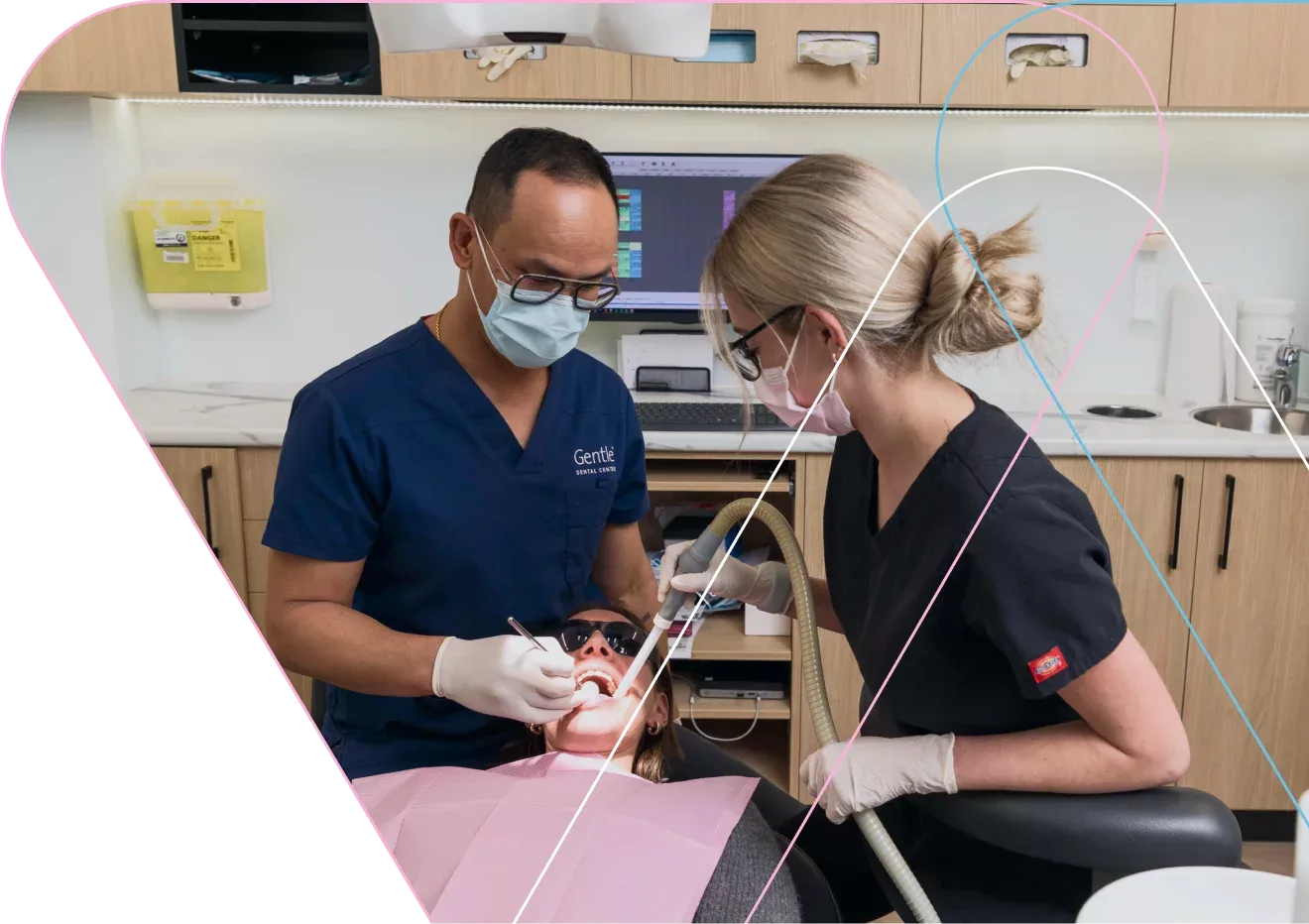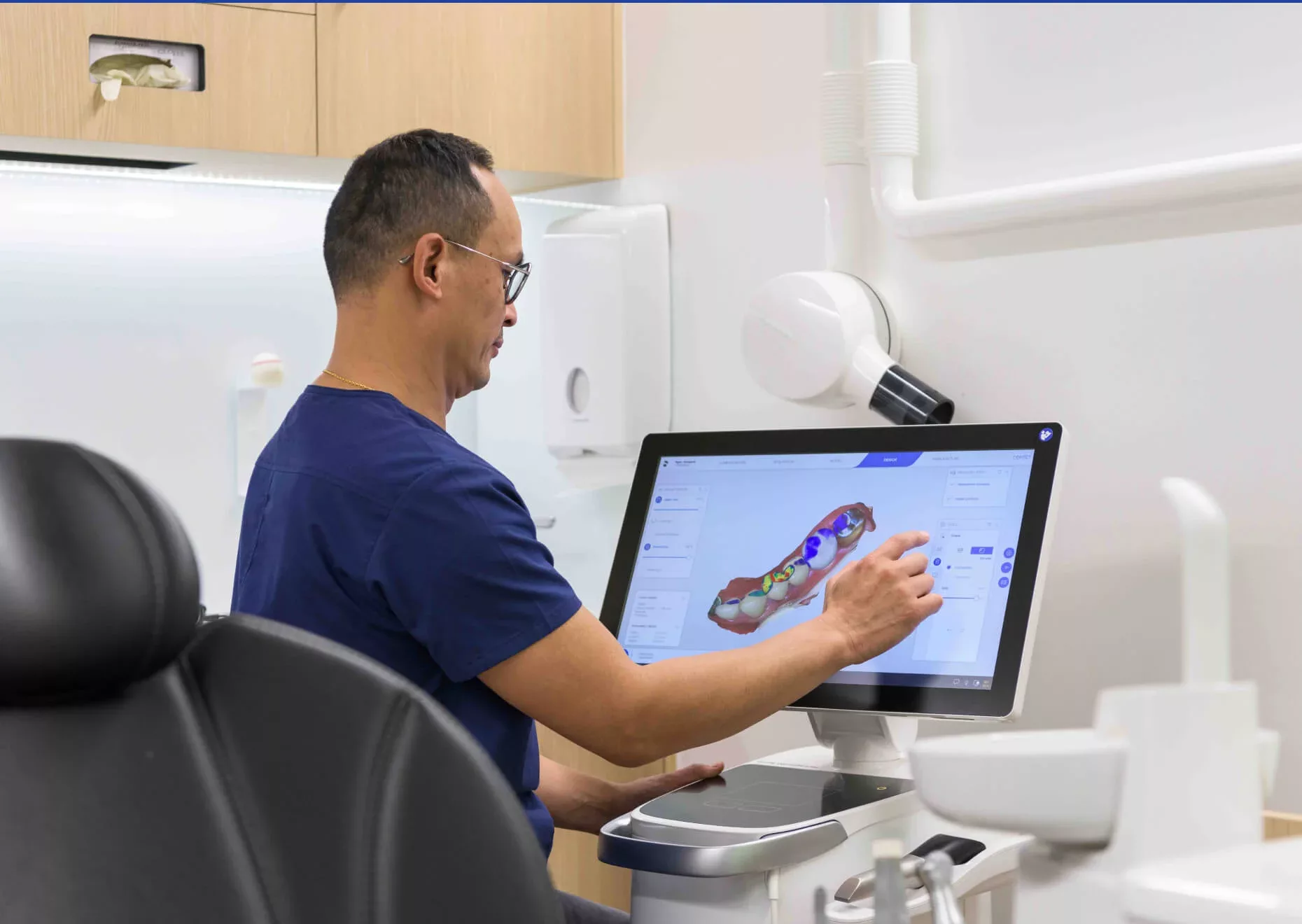Root Canal Therapy
Root canals have a bad reputation, but they’re really nothing to worry about. A root canal is the removal of an infected or irreversibly damaged nerve from the centre of the tooth, which our friendly dentists undertake with our usual gentle approach.


What is Involved in a Root Canal?
A root canal procedure is done to eliminate bacteria and infection from the tooth's pulp. During the treatment, your dentist will remove the infected pulp and thoroughly clean and shape the root canal.
After the root canal treatment is completed, a filling is placed on top of the tooth to prevent bacteria from re-entering. In many cases, a crown is also recommended to maintain the structural integrity of the tooth. Typically, this treatment requires two separate appointments in addition to the initial consultation.
Signs You May Need Treatment
Cracked teeth, decay, broken fillings, and trauma to a tooth can all cause irreversible damage to the nerves of your teeth potentially requiring root canal treatment. Common symptoms include:
01
Sensitivity to temperature
02
Pain when biting or to pressure
03
Dull ache or sharp shooting pain
04
Swelling in the jaw or gum above the infected tooth
05
Change in tooth colour (often grey)
06
History of a cracked filling
What You Need to Know
Root canals are no more uncomfortable than a filling or other types of dental procedures. You'll receive a local anesthetic before treatment to ensure you don’t feel any pain.
Our gentle dentists will eliminate the bacteria and infected tissue, fill the root canal, and seal the tooth with either a filling or a crown. Your dentist will provide you with aftercare instructions, which are crucial to follow to ensure your tooth heals properly without any irritation.

What to Expect at Your Root Canal Appointment

01
A consultation, x-rays and a mouth examination
02
Typically, the procedure requires two one-hour appointments spaced 2-6 weeks apart. However, in some cases, the entire root canal can be completed in a single visit.
03
A follow-up appointment will be scheduled in 6 months to ensure proper healing.
04
If a crown is recommended, a two-hour appointment will be needed to place it.
Frequently Asked Questions
Can your tooth survive without the pulp?
Beneath the layer of enamel on the outside of our teeth is a hard layer called the dentin and a soft tissue called the pulp. The pulp contains the nerves, connective tissue and blood vessels. In our early years, the pulp is important because it helps our teeth to grow. However, as adults, our teeth have fully matured, and can survive without the pulp. That’s why rather than just extracting infected teeth, dentists instead work to remove the infection and save the tooth.
How does the tooth pulp become infected?
The nerve of your teeth can be irreversibly damaged by cracked teeth, decay, broken fillings, trauma, or even gum disease. The need for a root canal will depend on the severity of the damage.
Should I have a tooth extraction or a root canal?
In the past, teeth with irreversibly damaged pulps were often extracted. Today, however, tooth extraction is not the preferred approach. Natural teeth are vital for maintaining the structure of the mouth and jaw, supporting neighbouring teeth, and aiding in chewing and eating. For these reasons, we strive to restore natural teeth whenever possible.
Are root canals preventable?
It is possible to prevent the need for a root canal. Establishing a regular oral hygiene routine will help keep your teeth clean and free from bacteria. Brushing twice a day, flossing daily, and regular dental checkups are the best ways to take care of your teeth and gums. If you think you need a root canal, book an appointment with the team at Gentle Dental.

